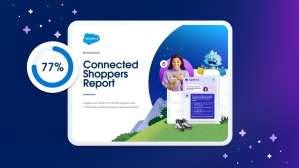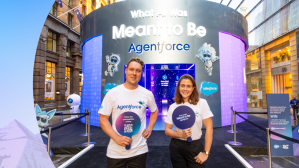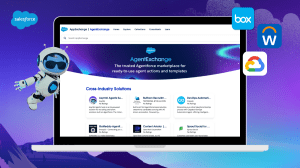Rowena Westphalen, SVP of Innovation, AI, and Customer Advisory, and Justin Tauber, GM of Innovation and AI Culture, told the iTnews Podcast that Australian business leaders can close the gap between AI ambition and action through education and enablement.
They also highlighted the role of agentic AI in addressing Australia’s productivity challenges and the importance of considering human factors for successful AI implementation.
Why it’s important:
The interviews followed the release of a white paper, “Building an AI-Powered Business in 2025,” which outlined six key questions for business leaders developing their AI strategy. The main takeaway: integrate technology with broader business goals and envision an Agentforce-powered business.
Westphalen and Tauber advise that for local businesses using autonomous AI agents to boost productivity and customer service, nothing beats hands-on experience working alongside customer-facing teams to understand the daily impact.
They discussed how the release of Agentforce, the agentic layer of the Salesforce Platform, will redefine what the digital labour platform for enterprises can be, augmenting teams with trusted autonomous AI agents and demonstrating how Salesforce is helping Australian businesses implement AI successfully.
You give them guardrails, you give them a clear role. You tell them when they should escalate.
Justin Tauber, GM of Innovation and AI Culture, Salesforce
The Salesforce perspective:
- Rowena Westphalen highlighted Australia’s national productivity problem, as businesses search for ways to unlock growth. With agents capable of pivoting quickly and taking action, this supply of digital labour can tap into data and reason, working within existing workflows to take action on behalf of overwhelmed teams.
- “We asked Australian workers what percentage of their time they spend on manual and repetitive tasks, and they said 40 per cent, so even if we could just take even half of that and automate it, that sounds like an amazing outcome for employees, and for businesses looking to use resources more productively.”
- Justin Tauber suggested drawing parallels about onboarding AI like an autonomous agent, and welcoming a new intern or staff member to the organisation.
- “You give them guardrails, you give them a clear role. You tell them when they should escalate. You’d also give them a manager who has responsibility for ensuring that their performance is up to scratch.”
The customer perspective:
For the Queensland University of Technology (QUT), the Salesforce platform has been fundamental in changing how the institution engages with its community, providing 360-degree view of students from their initial consideration of QUT as a place to study, through their uni years and onwards as successful alumni.
- James Rail, QUT’s Digital Transformation Program Lead, said AI is transforming its contact centre in a positive way.
- “We see AI being a support structure that complements the flow of work; it takes away some of the ‘busyness’ and administrative burden of our agents as they manage inquiries. And so that we can free them up to do what they do best — and that is provide support in meaningful and personalised ways to those that need us.”
Explore further
- Listen to Rowena Westphalen’s iTnews podcast interview
- Listen to Justin Tauber’s iTnews podcast interview
- Listen to QUT’s journey with Salesforce
- Read the full Building an AI-Powered Business in 2025 white paper
- Learn more about Agentforce















